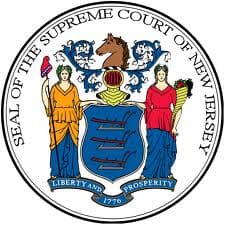 A recent New Jersey Law Journal story, “Courts Won’t Upset Settlement or Fees in Dentists’ Suit Against Horizon,” reports that the New Jersey Supreme Court will not disturb a class action settlement between Horizon Blue Cross Blue Shield of New Jersey and about 17,000 dentists alleging improper claims processing and violations of state prompt payment laws. Nor will the court consider a request to enhance counsel fees, which leaves plaintiffs’ law firm, Mazie Slater Katz & Freeman, about $190,000 short of what it was seeking.
A recent New Jersey Law Journal story, “Courts Won’t Upset Settlement or Fees in Dentists’ Suit Against Horizon,” reports that the New Jersey Supreme Court will not disturb a class action settlement between Horizon Blue Cross Blue Shield of New Jersey and about 17,000 dentists alleging improper claims processing and violations of state prompt payment laws. Nor will the court consider a request to enhance counsel fees, which leaves plaintiffs’ law firm, Mazie Slater Katz & Freeman, about $190,000 short of what it was seeking.
The court’s April 8 decision, declining to hear appeals in Kirsch v. Horizon, leaves intact the 2012 agreement by which Horizon sets aside $2.85 million and makes maximum payments of $167 to each class member. The company also agrees to adopt business initiatives designed to increase transparency in claims payments, reduce the dentists’ administrative office overhead and improve customer relations.
The settlement was reached after seven years of litigation. As part of the agreement, Horizon also agreed to set aside a maximum of $2.5 million for counsel fees. Essex County Superior Court Judge Paul Vichness approved Mazie Slater’s application for 3,035 hours at $600 per hour, totaling $1.821 million. He added another $488,713 in costs, bringing the total to $2,309,713.
Mazie Slater then sought a 25 percent enhancement amounting to $455,250, of its base fee, meaning that the $2.5 million set aside by Horizon for counsel fees and costs would have been exhausted. Vichness approved the enhancement but objectors appealed.
But the appeals court overturned the fee enhancement. Citing the Supreme Court’s ruling in Rendine v. Pantzer and Walker v. Giuffre, the judges said contingency enhancements are “only available in those cases that our Legislature has selected for statutory fee-shifting so as to achieve its broader public purposes of attracting counsel to socially beneficial litigation.” This was not such a case, they said.
